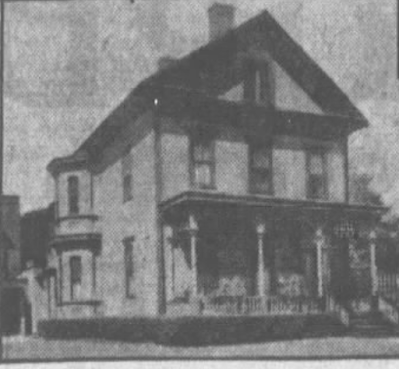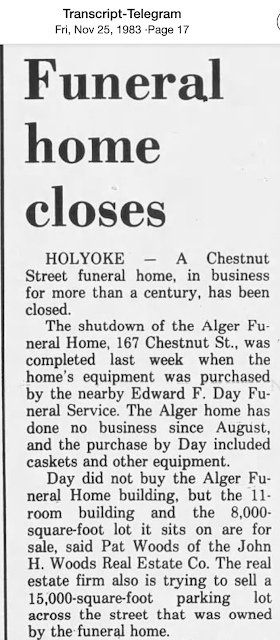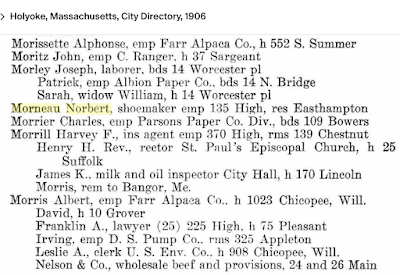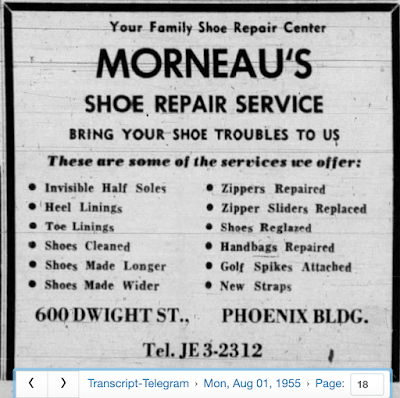Several funeral homes that have operated in Holyoke had their origins in the 19th century. The Dillon and Hobert Funeral Homes also stood the test of time through much of the 20th century. Another long-time funeral home was the Alger Funeral Home, the subject of today's edition.
Floyd C. Alger arrived in Holyoke at age 17 in 1896 with his parents, Charles R. and Alice (Coburn) Alger. Charles Alger's start as a funeral director began in Cooperstown, New York, in 1880. The family moved to Willimantic, Connecticut, and then to Holyoke when Charles Alger purchased the R. A. Dickinson Funeral Home at 284 High Street. The family resided at 270 Maple Street.
Floyd Alger graduated from Holyoke High School in 1899 and began working at his father's funeral home.
In 1901, the funeral home was relocated to 116 Dwight Street, the future site of the Phoenix Building, which was later constructed in 1909 and 1910.
In 1906, the funeral home moved to 256 Maple Street, and the Alger family moved next door to 254 Maple Street. This was previously the home of Dr. Lyman M. Tuttle, superintendent of the Holyoke City Hospital. The south side of this building abutted the Tilley Furniture Store, which was located at the northeast corner of Maple and Suffolk Street.
In 1919, the funeral home was relocated to the former J. R. Russell home at 167 Chestnut Street. After the death of J. R. Russell, his son, Robert Russell, resided there. I had read that this was the second-built house on Chestnut Street, possibly dating back to 1860.
In 1927, Charles Alger died. Floyd Alger continued the family's tradition of operating a funeral home. In 1931, Floyd Alger's son, Ernest Alger, was a student at Syracuse University and also planned to join the business. This became a three-generation business. Father and son continued to run the service until Floyd Alger's passing in June 1956.
Ernest Alger operated the funeral home until his retirement in 1974. His assistant, Vernon Morrill, continued to maintain the business until his passing in April 1983. The final funeral service was conducted in August 1983, 103 years after Charles Alger, the founding father, became an undertaker.
The equipment was sold to the Edward F. Day Funeral Service, located at 134 Chestnut Street, in November 1983.
The real estate, which included ten rooms and a 15,000-square-foot parking lot across the street, was sold in May 1984 to John Batcheller, the owner of the Springfield Bridge Club. At the time, the bridge club had a membership of 175 people, and more space was needed than it had at its previous location on the second floor at 1500 Northampton Street.
Citations:
Newspapers.com (paid subscription): Citations: Holyoke (Massachusetts) Transcript & Transcript-Telegram; publication dates and pages are shown.
Holyoke Public Library History Room, Price & Lee City Directories, Holyoke, Massachusetts.
























































